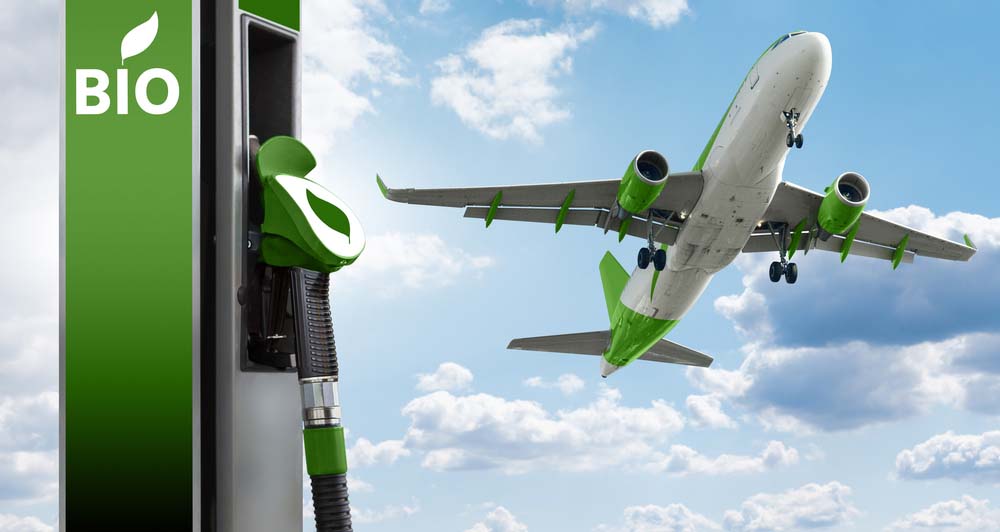
Regulatory bodies and operators across the world have shown significant commitment to increasing the use of SAF. (Photo: Avion Insurance)
In recent years, the aviation industry has turned its attention to sustainable aviation fuel, or SAF. This innovation involves using biomass to create a fuel with similar properties to traditional jet fuel, only with a lower carbon footprint. With SAF, items like corn gain, algae, oil, and a variety of residues from agricultural and industrial activities can be used to power aircraft with significantly lower carbon emissions. In recent months, regulatory bodies and operators across the world have shown commitment to this new fuel by taking measures to allow it to become more widespread.
This month, the United States and United Kingdom have begun discussing strategies to allow for increased development of SAF. The UK’s Secretary of State for Transport Mark Harper is meeting the United States’ Department of Transportation Secretary Pete Buttigieg at the SAF Investment Summit in Detroit, Michigan. Accompanied by representatives from both Canada (Minister of Transport Omar Alghabra) and Singapore (Minister of Transport S. Iswaran), all parties at the summit hope to find improved ways to encourage widespread adaptation of SAF. Important companies in the industry like Boeing and United Airlines are also attending.
International cooperation will be critical in the push for SAF. As Harper explained, “While an ocean separates, we’ve never been more aligned with the USA on the future of aviation and what that entails—whether it’s boosting jobs, opening new trade opportunities or delivering guilt-free air travel. This trip is a crucial part of our work to reduce emissions from aviation alongside the USA, Canada, and Singapore, and I look forward to meeting my counterparts and industry representatives.”
Meanwhile, the European Union (EU) recently finalized an initiative to help make SAF more available to the airline industry in Europe. Under this legislation, by the year 2025, 2% of all fuel that suppliers sell needs to be SAF. This figure rises to 6% in 2030, 20% in 2035 and 70% by 2050. In addition to SAF requirements, 1.2% of fuel available is required to be synthetic fuel by 2030, and by 2050 this figure is required to rise to 35%.
These laws were developed to stimulate both the supply and demand of SAF. However, despite the reduced carbon emissions expected as a result of this regulation, some of the largest airlines in Europe have criticized the EU’s attempts to reduce the impacts of air travel. Air France-KLM has claimed that its own SAF goals are more ambitious than those set by the EU, while Lufthansa points out concerns regarding competition. While European airlines would be forced to use SAF (which is more expensive than traditional jet fuel), other carriers flying into European cities from outside of the EU’s borders would not be held to the same standards. This could put European airlines at a notable disadvantage.
While the EU’s attempts at increasing the presence of SAF in the industry have been met with opposition by several airlines, carriers in other parts of the world have already demonstrated acceptance of this new fuel. Abu Dhabi-based Etihad Airways has already begun planning its first flight using SAF made from CO2 through its partnership with Twelve, a carbon transformation company.
Under their partnership, Etihad will help accelerate the use of Twelve’s E-Jet fuel. This low-carbon fuel is created by a power-to-power liquids process, and will be utilized on a demonstration flight using one of Etihad’s aircraft.
This step will allow Etihad to operate more efficiently while minimizing its harmful impacts on the global climate. As Nicholas Flanders, Twelve’s co-founder and CEO, explained, “We are honored to partner with Etihad to work toward a supply of drop-in jet fuel made from air, not oil. Our E-Jet fuel allows airlines like Etihad to reduce emissions by up to 90% with their existing aircraft fleet, which will be critical to achieving the United Nations’ 2050 net-zero emissions target in aviation.”
Etihad’s partnership with Twelve will help it reach its sustainability goals. The carrier has already demonstrated its commitment to sustainable air travel with the development of its Etihad Greenliner Program in 2019, in which one of the company’s Boeing 787-10 Dreamliners was dedicated to finding sustainable solutions to air travel through collaboration with Boeing and General Electric.
Just about a year ago, United Airlines announced a purchase agreement with Neste for SAF. Neste makes its fuel from renewable waste and sustainably sourced residue raw materials. This agreement made United the first U.S. airline to sign an international purchase agreement for SAF.
With so many authorities and operators adapting SAF, it’s clear the aviation industry is moving towards more sustainable fuel sources to help minimize air travel’s impact on climate change. While there are many challenges associated with SAF that must be addressed, influential agencies within the industry have already demonstrated their commitment to this more sustainable fuel source.